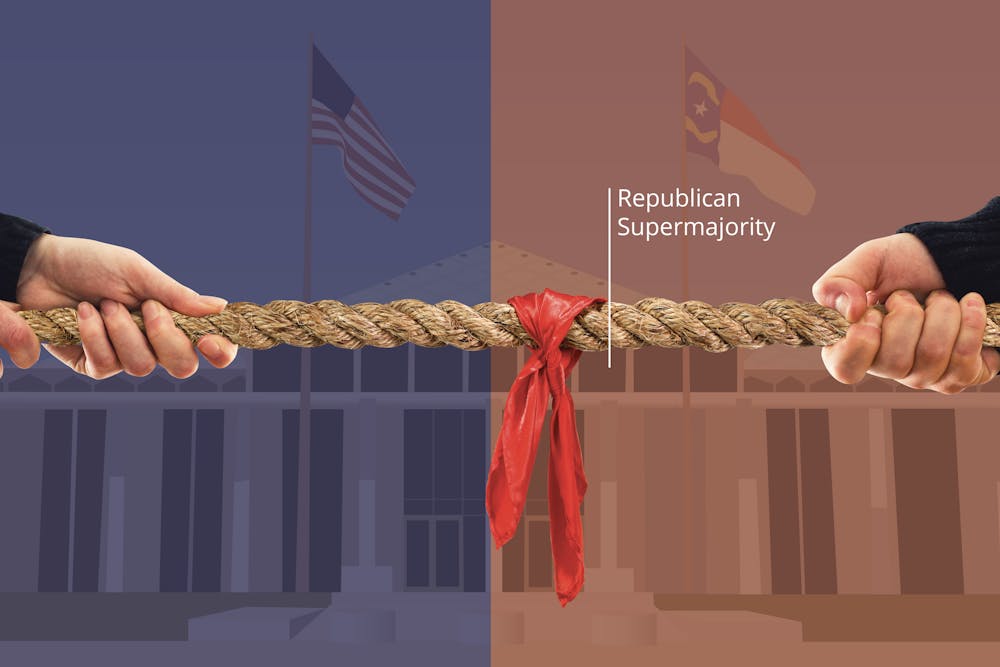After the November election, Republicans in the North Carolina General Assembly lost their ability to override gubernatorial vetoes along party lines after only retaining 71 out of 120 House seats, one seat shy of their previously held supermajority.
A supermajority allows a party to override a veto with a two-thirds vote in both the state house and senate without having to consult the opposing party.
Republicans have held the supermajority since April 2023, after Rep. Tricia Cotham (R-Mecklenburg), elected as a Democrat, switched parties during her term.
Having a supermajority has effectively allowed N.C. Republicans to execute their agenda, in spite of Democratic Governor Roy Cooper’s vetoes, and pass more than 20 bills, including measures limiting abortion access, parents’ rights in schools and adjustments to election law.
“Our governor is, by design, a fairly weak governor,” Western Carolina University Political Science Professor Christopher Cooper said. “And so under supermajority times, you're taking a very weak position — the North Carolina governor — and making it even weaker.”
N.C. Republicans retained a two-thirds majority in the state senate in the most recent election. However, without a two-thirds majority in both chambers, they can no longer override Democratic Governor-elect Josh Stein’s veto along partisan lines, giving him more leverage over policymaking.
Cooper said he expects Stein’s first term as governor to look similar to Gov. Cooper’s when Republicans did not have a supermajority.
“I think it will be a lot of playing defense, but he'll be much more successful in that defense than he would under Republican supermajority control,” Cooper said.
He said Republicans not having the ability to override Stein’s veto will likely lead to less legislation being passed. Democrats will still be unable to act on the offensive, he said, and Republicans will be more constrained.




